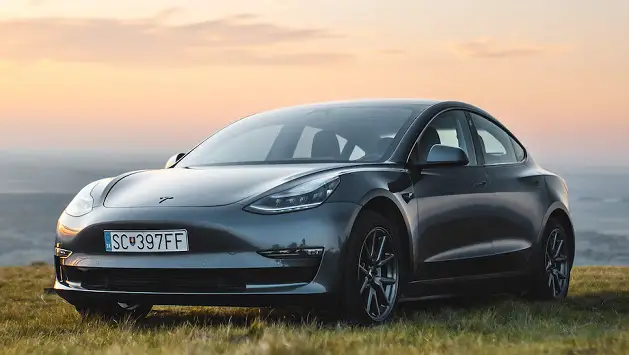In its recent survey of vehicle reliability, released Tuesday, Consumer Reports found electric vehicles rated among the least reliable vehicles out there, as manufacturers continue to work out the kinks in the new technologies they are integrating.
Compared to both hybrid, and gas-powered cars and trucks, electric vehicles powered only by batteries performed the worst in reliability in the survey, aside from full-size pickup trucks.
Jake Fisher, senior director of auto testing at Consumer Reports noted that reliability issues are to be expected at this point, since aside from industry leader Tesla, most automakers have only just begun to make electric vehicles, and have not had experience in ironing out the various problems inherent to the related technologies.
The other problem he noted was, since EV buyers tend to be tech-oriented, automakers have packed their new EV models with lots of technological features and extras, which adds to the number of things which can go wrong.
In an interview, Fisher said, “The automakers are using EVs as a technological testbed for whatever new technology they want to try out. By having all this new technology, there’s a lot of potential problems with them.”
The Consumer Reports survey queried 300,000 vehicle owners of cars from model year 2000 to 2022, and then extrapolated that data to make predictions about 2023 year vehicles.
Of the 275 models from 24 automakers, only 11 models from seven brands were fully electric vehicles. The survey included input from over 2,000 Tesla owners.
At the top of the list of EVs was the Kia EV6, which rated considerably above-average. The worst vehicle according to owner opinion was the electric Hyundai Kona.
In contrast, hybrid cars and trucks were found to be among the most reliable vehicles in the survey. Consumers Reports attributes that to the fact hybrid vehicles have been on the market for years, allowing automakers to work out the kinks in their designs.
Fisher noted, “When you put in new technology, and you try new things, and you deviate from what is proven technology, you’re going to have more problems.”
Among the most reliable brands in the survey were Toyota, Lexus, BMW, Mazda and Honda — all of which ranked above average in reliability. Japanese and Korean automakers had seven of the top ten most reliable brands. Lincoln was the only domestic brand to make it into the top-ten.
Industry leader Tesla advanced four spots in the rankings this year compared to last, but still remained below average. Other brands that were below average included Chevrolet, GMC, Volkswagen, Jeep and Mercedes-Benz.
Tesla owners reported problems with body hardware, and paint and trim across all models. In addition, the Model S had steering and suspension problems, and the Model S and Model Y crossover utility vehicles both had issues with climate control systems. In addition, owners reported that the center touchscreen in both the Model S and Model Y remained problematic.
One thing which has helped Tesla was selling fewer Model X vehicles. An SUV with gull-wing doors, which Elon Musk himself has described as a “Faberge egg” due to the complexity of its design, the Model X has had consistent reliability problems which has historically dragged down Tesla’s rankings.
Among Tesla’s products, the entry-level Model 3 rated average in reliability, while both the Model S and Model Y rated below average. Consumer Reports did not examine the reliability of the more complex driver assistance systems, such as Tesla’s Autopilot.

